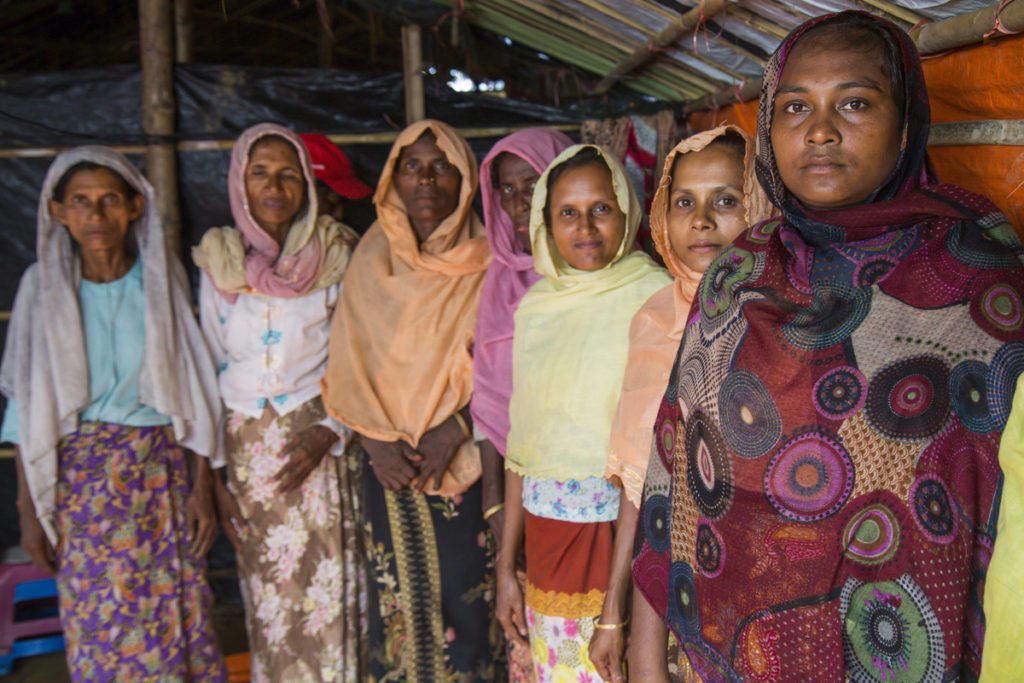The Rohingya women who fled their homes in Myanmar’s Rakhine State have the answer. The real question is whether the world will listen to their vision for their future, or simply stand idly by as these people who have survived decades of persecution are once again put in harm’s way.
The Rohingya women I met with in the refugee camps in Bangladesh were very clear. They want to go back home, but only if they can return as full citizens – with all their rights protected, and their safety and security guaranteed. Our local Bangladeshi team who are leading ActionAid’s response to this crisis, together with groups of Rohingya volunteers, has heard many accounts from people who saw their villages burning as they fled, and who want their homes rebuilt.
Back in January, when I was in the Rohingya camps, Bangladesh and Myanmar struck a deal to begin repatriating Rohingya refugees. They set a goal of 150,000 Rohingya people to return to Myanmar over a period of two years. The Myanmar government agreed to build a temporary resettlement facility to receive the Rohingya refugees, yet two months later this plan is still on hold, with the Burmese authorities refusing to verify the Rohingya refugees’ documents.
This appears to be another attempt by the authorities in Myanmar to deny the Rohingya their rights. This is by no means the first time that they’ve been targeted, and those who have returned have been placed in internment camps, where they have no rights to education or health care. They have to pray in secret. And they are left without adequate food and clean water.
Since this most recent crisis started, the Government of Bangladesh has been an incredible model for the world. They welcomed and have given safe refuge to more than 700,000 Rohingya refugees, which is particularly notable given that Bangladesh’s land mass has been shrinking due to rising sea levels.
Bangladesh is already a densely populated country with high poverty levels and it’s understandable that the government is eager to start returning refugees. However, it’s in their interests not to rush the repatriation, as a botched process will only lead to more refugees crossing the border in the future.
A safe, stable Rakhine State where the Rohingya people have their rights protected and their citizenship intact will give Bangladesh relief from this recurring refugee crisis.
News from Myanmar is dire. The violence continues – as evidenced by the fact that refugees continued to trickle over the border. On the ashes of Rohingya villages the Burmese military and corporate sector are building new homes and businesses intended for Burmese residents, and military installations.
There is a law that pre-dates this crisis that states that any house burned, and the land it sits on, becomes government property. It’s no accident that the Rohingya villages were burned and the subsequent land grab is underway.
At this time, the Rohingya people have no guarantees for their safety and security. No offer of citizenship has been made, and their basic human rights are being denied.
The international community urgently needs to take action to create a solution to this crisis to guarantee that the demands of the Rohingya women and their communities are met. We need a deal that gives the UN and international actors full access to Rakhine State, so they can monitor progress and ensure implementation.
Without this, history will be doomed to repeat itself.

